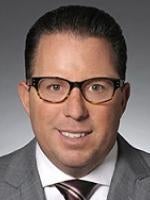Environmental, social and governance (ESG) matters will increasingly be a priority for the Securities and Exchange Commission (SEC) as evidenced by:
-
the SEC's announcements last week of the formation of a Climate and ESG task force under the purview of the SEC's Division of Enforcement;
-
the identification of ESG issues as a 2021 examination priority by the SEC's Division of Examinations on March 3; and
-
the March 2 Senate confirmation hearing testimony of Gary Gensler, President Joe Biden's nominee to lead the SEC, where Mr. Gensler said that investors increasingly "want to see climate risk disclosures."
This follows last month's instruction by Acting SEC Chair Allison Herren Lee that staff of the SEC's Division of Corporation Finance (CorpFin) should augment their focus on climate-related disclosure in public company filings.
As a result, investment advisers, investment funds, public companies and other market participants should begin preparing for this SEC focus.
Background
There is no precise legal or regulatory definition of ESG and the SEC has provided little in the way of specific ESG investing guidance, despite growing demand by institutional investors, ESG advocates and other market participants for the SEC to do so.
With respect to investment advisers, the SEC's focus has been on the fiduciary duty an investment adviser owes to its clients. This includes looking at any ESG disclosures made by investment advisers and funds that pursue ESG investment strategies to make sure that investors receive accurate and adequate information about the material aspects of those strategies.
In addition, the SEC has not adopted any rules governing how investment advisers must incorporate ESG principles into their investment process. Instead, for public reporting companies, the SEC has taken a principles-based approach to disclosures that focuses on materiality. Notably, in February 2010, the SEC issued guidance on climate-related risk disclosure for public companies (2010 Guidance). The 2010 Guidance identified four existing items in SEC Regulation S-K that may require disclosure related to climate change — description of business, legal proceedings, risk factors and management discussion and analysis (MD&A).
Get Ready For SEC Exams and Enforcement Action
On March 4, the SEC announced the creation of a Climate and ESG task force under the purview of the SEC's Division of Enforcement (ESG Enforcement Task Force). According to the SEC's press release, this newly created ESG Enforcement Task Force "will develop initiatives to proactively identify ESG-related misconduct" and use "sophisticated data analysis to mine and assess information across registrants, to identify potential violations." The initial focus of this ESG Enforcement Task Force will be to look for "material gaps or misstatements in issuers' disclosure of climate risks under existing rules" and to "analyze disclosure and compliance issues relating to investment advisers' and funds' ESG strategies." As with prior SEC enforcement task forces, firms should expect to see enforcement actions in this targeted area.
The creation of the ESG Enforcement Task Force followed the SEC's Division of Examinations identifying ESG issues as a 2021 exam priority on March 3. The focus of these exams will be on investment advisers and investment funds. Among other things, the Division of Examinations will review:
-
the "consistency and adequacy" of disclosures made by investment advisers and investment funds to see if these firms' processes and practices match their ESG disclosures;
-
investment adviser and fund advertisements for false or misleading ESG statements; and
-
firms' proxy voting policies and procedures and proxy votes to assess whether the votes align with an investment adviser's ESG strategies.
See the press release announcing the Division of Enforcement ESG Task Force and the SEC's Division of Examinations 2021 priorities.
Public Company ESG Disclosures
The SEC also is reviewing the current ESG disclosure framework for public companies. On February 24, Acting SEC Chair Lee issued a statement that she was directing the CorpFin staff "to enhance its focus on climate-related disclosure in public company filings." As part of this focus, CorpFin will:
-
review the extent to which public companies address the topics identified in the 2010 Guidance;
-
assess compliance with disclosure obligations under the federal securities laws;
-
engage with public companies on ESG issues;
-
absorb critical lessons on how the market is currently managing climate-related risks; and
-
begin updating the 2010 Guidance to take into account developments in the last decade.
Two recent SEC staff appointments by Acting SEC Chair Lee further reinforce that ESG reporting will be a top priority for the SEC. On February 1, the SEC announced that Harvard Professor John Coates will serve as Acting Director of the SEC's Division of Corporation Finance. Mr. Coates served as Chair of the Investor-as-Owner Subcommittee to the SEC's Investor Advisory Committee, which recommended that the SEC "begin in earnest an effort to update the reporting requirements of [public companies] to include material, decision-useful, ESG factors." In addition, it was widely reported that at an industry conference Mr. Coates recently said the SEC "should help lead" the creation of a disclosure system for ESG issues for companies. Also on February 1, the SEC announced that Satyam Khanna will serve as Senior Policy Advisor for Climate and ESG in the office of Acting Chair Lee, which is a newly created role to advise the SEC on ESG matters and advance related new initiatives across the SEC's offices and divisions.
Despite these actions and Mr. Gensler's statements during his Senate testimony suggesting he supports an ESG-focused SEC agenda, not all SEC commissioners favor changing the current principles-based approach to disclosures that focuses on materiality. On January 30, 2020, SEC Commissioner Hester M. Pierce stated that the SEC "ought not step outside our lane and take on the role of environmental regulator or social engineer." More recently, on March 4 of this year, she and fellow Commissioner Elad L. Roisman issued a joint statement in response to the flurry of climate-related SEC announcements noting that the announcements "raise more questions than they answer." Nevertheless, it appears likely that proposed changes to the SEC's principles-based approach to ESG disclosures will be forthcoming and that the SEC will take steps towards adopting some form of mandatory ESG disclosure for public companies.
What Should Firms Do Now
Investment advisers and other market participants should begin preparations for the SEC's ESG initiatives. Among other things, investment advisers should consider reviewing and revising, as appropriate, ESG disclosures in marketing materials, Forms ADV, fund offering documents and advisory agreements, along with reviewing their ESG proxy voting practices. Those public companies that have not engaged in meaningful ESG discussions with their various stakeholders should consider whether and how to do so, including starting to educate management on ESG matters. If they have not done so already, boards of directors should start thinking about company specific ESG matters and how the board oversees these ESG matters.








 />i
/>i

